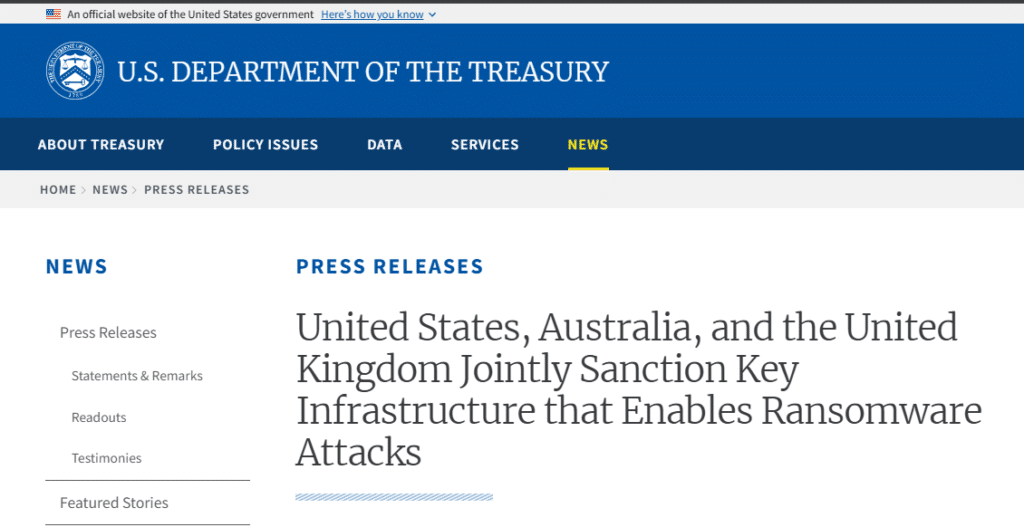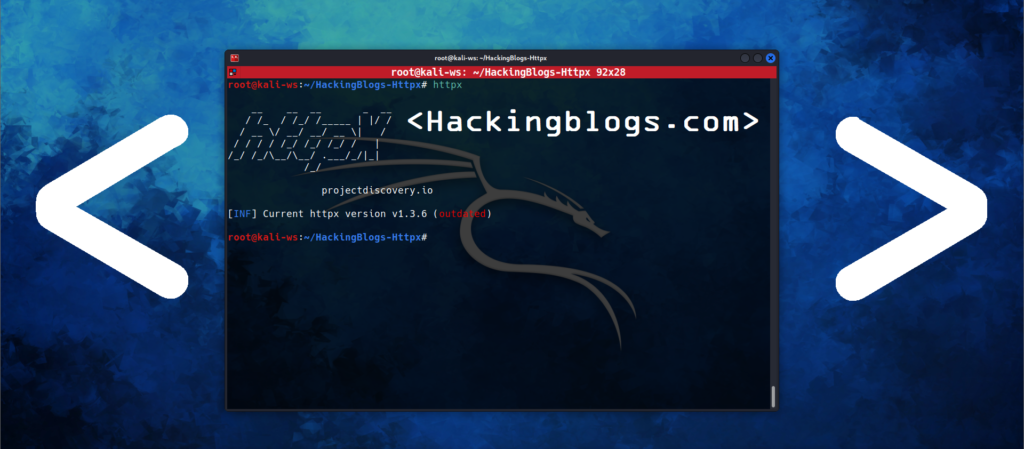Today, the U.S. Treasury Department, in collaboration with Australia and the United Kingdom, took a major step against cybercriminal infrastructure by banning Zservers, a Russian bulletproof hosting company that enabled attacks with ransomware by the infamous LockBit group.

Read this article to gain a deeper understanding of bulletproof hosting, and then read this article further.

Zservers: The Key Enabler Behind Ransomware Attacks
Based in Barnaul, Russia, Zservers is well-known for providing hosting services that let cybercriminals work in secret. They let IP addresses, servers, and domains for the purpose of distributing ransomware, building botnets, and carrying out other cybercrime activities. Numerous cyberattacks, including the well-known 2023 breach of the Industrial Commercial Bank of China, have been supported by the company’s services.
Evidence of a LockBit associate using a virtual machine linked to a Zservers IP address during an operation was discovered by Canadian law enforcement in 2022. Subsequent research revealed that Zservers continued to facilitate destructive ransomware operations by providing hackers with a secure environment in which to carry out their attacks while avoiding detection.
Important People and Ransomware Activities
Russian citizens Alexander Igorevich Mishin and Aleksandr Sergeyevich Bolshakov, administrators at Zservers who were crucial in enabling cybercrime, were also singled out by the penalties. Mishin handled bitcoin payments associated with these illegal operations and marketed Zservers’ services to ransomware operators.
In contrast, Bolshakov was implicated in a particular case in which he changed an IP address in response to a Lebanese company’s worries regarding ransomware operations associated with Zservers.
Strategic Sanctions and International Collaboration
Targeting the core of ransomware’s supporting infrastructure, the move demonstrates international collaboration to tackle cybercrime, with law enforcement from Australia and the United Kingdom working alongside the U.S. Treasury’s Office of Foreign Assets Control (OFAC).
To defend global infrastructure from cyberattacks, Bradley Smith, Acting Under Secretary of the Treasury for Terrorism and Financial Intelligence, underlined the significance of disrupting these criminal ecosystems.
According to U.K. Minister of State for Security Dan Jarvis, denying cybercriminals the resources they need, such as bulletproof hosting, greatly reduces their capacity to cause damage, particularly to critical businesses like the energy and financial sectors.
Legal Implications and Sanctions
Zservers, Mishin, and Bolshakov’s assets are not permitted inside U.S. jurisdiction due to the sanctions, which means that no U.S. person or entity is able to conduct any business with these persons or the corporation. Additionally, financial institutions are warned that doing business with these sanctioned organisations may result in fines.
Additionally, the action is a major obstacle to anyone who would think of offering hackers similar assistance services. Prior cases have demonstrated that law enforcement around the world is dedicated to pursuing these facilitators, since those participating in bulletproof hosting operations have received lengthy prison sentences.
The penalties imposed today strengthen the United States, United Kingdom, and Australia’s resolve to fight ransomware from every angle. Authorities hope to lessen ransomware groups’ ability to do damage by severing access to the people and infrastructure that facilitate these attacks.


